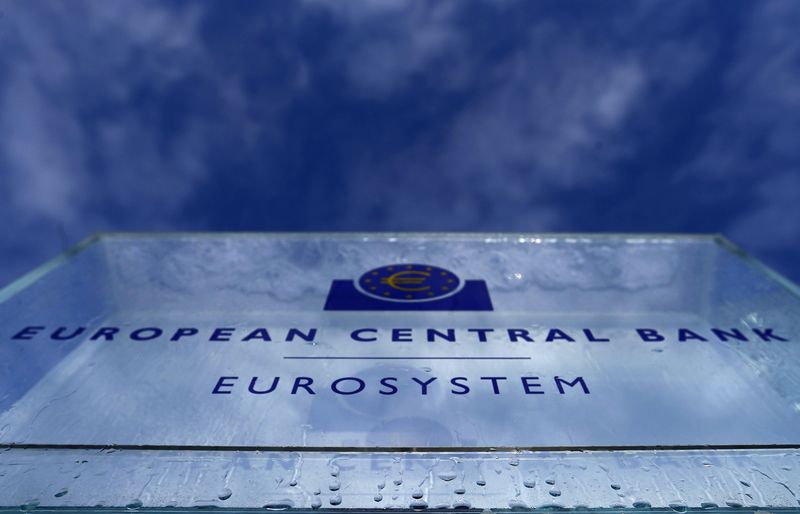By Francesco Canepa
FRANKFURT (Reuters) - A sharp selloff in euro zone sovereign bonds over the past two weeks is proving a shot in the arm for the European Central Bank's asset purchase plan, allaying concerns the bank may struggle to find enough bonds to buy.
The selloff has been driven by factors including investor unease about near-zero yields and raised inflation expectations driven by a rebound in oil prices.
As bond prices fall, yields rise, and the proportion of all euro-denominated government bonds with bid yields below zero dropped to 25.2 percent on May 8 from 35.9 percent on April 13, according to Tradeweb data.
That has broadened the pool of bonds the ECB can buy under its quantitative easing (QE) purchase programme, which excludes all paper yielding below the minus 20 basis points that corresponds to the bank's deposit rate.
In the 2-30 year range in which the ECB can buy, 5.82 percent yield less than the deposit rate, the Tradeweb data showed.
Germany is the only country affected by the negative yield floor, according to Deutsche Bank (XETRA:DBKGn) estimates.
According to the bank's analysis, the market value of all eligible German bonds increased by 176 billion euros to 1.131 trillion euros (£811.1 billion) between April 20 and May 12, despite a sharp fall in prices.
A successful rollout of QE, designed to lift the economy, is seen as key in underpinning investor confidence in the euro zone, rattled by persistent tensions over Greece's finances.
"Quantitative easing makes it easier for Europe to deal with special situations," Dirk Schumacher, an economist at Goldman Sachs, said. "In the past there were doubts about the ECB's ability to do whatever it takes. But ... much less so now."
"The developments in the past week have been helping with the programme," added Ewald Nowotny, a member of the ECB's decision-making Governing Council, in an interview with Reuters last week.
The ECB's purchases - targeted at 60 billion euros (around $68 billion) of assets a month - proceeded at the same pace last week as in previous weeks, despite the rise in bond yields.
As the pool of eligible bonds has risen, their average market value has fallen, making it harder for the ECB to turn a profit if it buys and sells.
But economists note that the ECB has no interest in making a profit.
"Monetary policy is not about making money," Marco Valli chief eurozone economist at UniCredit Research.
